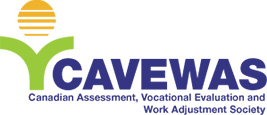Dictionary of Occupational Titles
Home › Forums › CAVEWAS Forum › Dictionary of Occupational Titles
- This topic has 0 replies, 1 voice, and was last updated 2 years, 8 months ago by Francois Paradis.
-
AuthorPosts
-
December 29, 2022 at 12:52 pm #1828Francois ParadisParticipant
An interesting article was recently published by the Washington Post on the Social Security Administration (SSA)’s use of the Dictionary of Occupational Titles (DOT) to adjudicate disability claims (https://www.washingtonpost.com/politics/2022/12/27/social-security-job-titles-disabled-applicants-obsolete/). Predictably, the DOT is painted as an obsolete tool (most of its data being last updated in 1977) that poorly reflects today’s labour market. I think the author makes some valid points but unfortunately, she goes on painting a rather negative picture of vocational evaluators. The article focuses on what I assume are a minority of VE’s who indiscriminately use obsolete sedentary jobs (the example of Nut Sorter is given) that no longer exist to support their opinions, resulting in applicants being unfairly denied benefits. The author gives the impression that a majority of VE’s misuse the DOT in this fashion. I think rather that most VE’s using the DOT crosscheck and update its information with more modern sources. I think that this article put our profession in a bad light in the court of public opinion, with our American colleagues being more keenly affected.
Not surprisingly, our colleagues south of the border were quick to react and a lively discussion has been happening on IARP’s forums. Those with IARP membership can visit (https://connect.rehabpro.org/forensic/discussion/ssa#bm79d10325-33fa-411e-9f4a-3ce76cc42460) for details. In summary, most posters agree that the DOT is an obsolete tool but that it remains a necessary one until a suitable alternative becomes available. There is also general agreement that most VE’s use the DOT with caution, update its data with other sources, such as the ORS or labour market surveys and do not recommend jobs that no longer exist in substantial numbers. One dilemma is how to respond to an article that presents the general public with such an inaccurate and oversimplified picture of our professional practice? Some have suggested publishing a rebuttal in IARP’s journal but that, I think, would only be preaching to the converted and would not reach the intended target, the general public. Besides, an article on the need to update the DOT has already published by IARP back in 2009 (https://skilltran.com/pubs/RehabPro_17_2_pp63-84.pdf).
There is also a debate on what is an appropriate alternative to the DOT. Is the ORS a suitable replacement to be officially endorsed by the SSA? Some think not, as its data is still preliminary and point out to the employer survey method as a shortcoming, vs field surveys by job analysts for the DOT. Judging from the conversation, there seems to be no agreement on the merits of the ORS and at this time, there are various “recipes” out there to deal with this issue but little consensus on what is a sound methodology to compensate for an increasingly aging DOT. I think our American colleagues would do well to create a task force and produce a position paper on this matter, outlining a methodology presenting alternative sources of occupational information and a process to compensate for the DOT’s flaws.
Personally, I rarely rely on the DOT nowadays but still encounter some VE’s that do, as well as several OT’s and PT’s conducting functional abilities evaluations and job analyses. I am curious to know your thoughts on this topic, especially from those among us who still use the DOT. How do you deal with the age of the DOT?
Happy new year!
-
AuthorPosts
- You must be logged in to reply to this topic.
